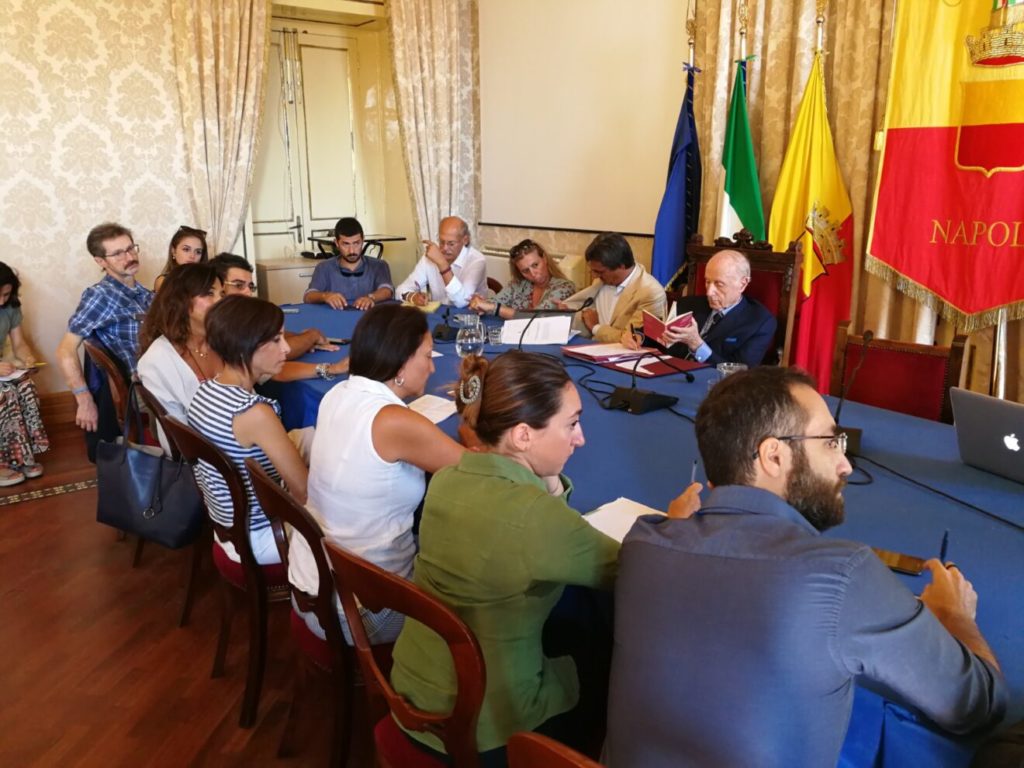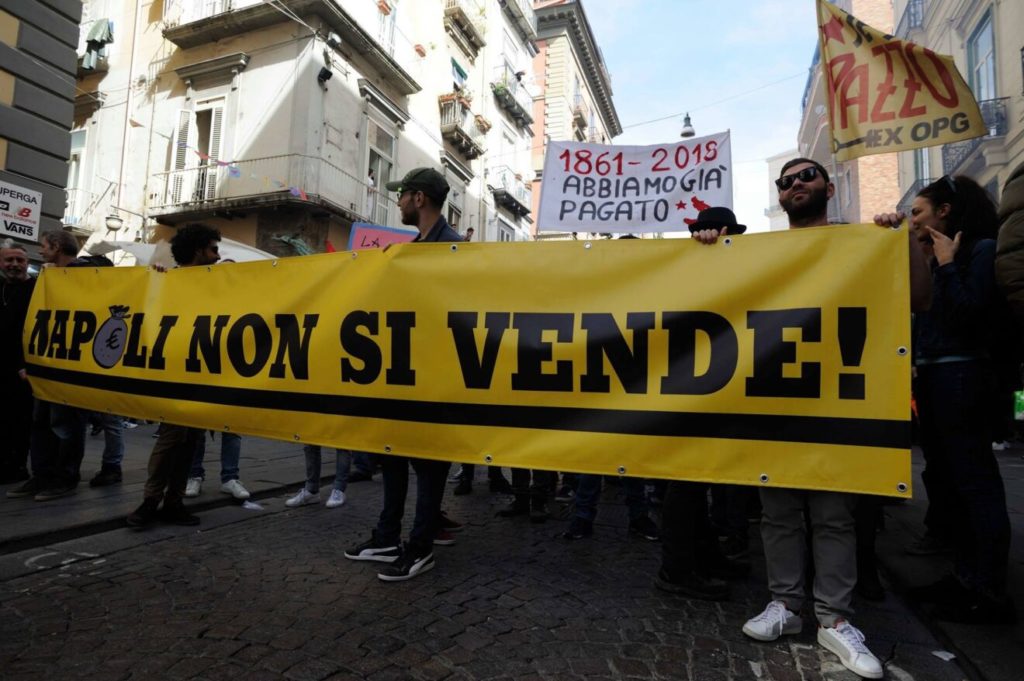The purpose of the Audit Council on the Resources and Debt of the City of Naples is to analyse the city’s budgets in order to shed light on the origins of the city’s debt, the mechanisms that generate it and reinforce it through austerity policies, and the parameters of the loans and interest rates that burden the City of Naples. This is not a ‘people’s court of auditors’, i.e. a neutral control body, but a political body whose aim is to reclaim resources for fundamental rights. Thus, the analysis of the public debt aims to understand which parts are odious and illegitimate – and therefore contrary to the general interest – and should not be paid. The Council has 19 members, appointed by the mayor among experts and activists, mainly from the commons and housing movement, but also from the national movement for the abolition of illegitimate debt (e.g. Attac Italy and CADTM Italy). It is chaired by Paolo Maddalena, former Vice-President of the Italian Constitutional Court.

How it came to be
The path of the audit of the debt is linked to that of the commons through the participation of the Neapolitan network in the journey of the Massa Critica Napoli mouvement, born in 2015 to give a political agenda about the city in view of the then coming elections. Through Massa Critica, a common political platform for action and reflection, social movements gathered in public assemblies, in the commons and in public spaces, to demand new spaces for democracy and to transform institutions in a sense that would allow for greater participation of citizens and inhabitants in public decision-making processes regarding the city.
This process has allowed citizens and inhabitants to question what was and is considered an automatic trend in local public finance since the 2008 crisis and the 2012 constitutional reform. This is the tendency to exploit public real estate mainly in an economic sense, through sale or other forms of income generation. The latter is part of a framework of policies that are strongly constrained by the rules of the public budget, which leave little room for action of the democratically elected institutions, discouraging above all intervention in the social field and public services, which involves essential expenditure on fundamental rights, but of doubtful – and at least not immediate – economic return.
Massa Critica’s first step was to set up an informal civic working table to analyse the public debt, arguing that ‘if the debt is public, it must be publicly discussed’. This assembly acknowledged that the peak of indebtment – which limited public spending and democracy – was caused by regulatory traps, rather than a substantial impoverishment: the laws had changed the amounts that had to be preserved because of uncollectable credits and had cut the transfers of resources to from the central to the local level, without allowing local institutions to impose new taxes.
This work showed the necessity and urgency of a path for public control and discussion of the debt. For this reason, after a long negotiation, supported by a strong and heterogeneous popular movement, the City of Naples established the Council for the Control of Resources and Debt of the City of Naples.
The work of the Council: Dismissions, New Public Finance and Unfair Debt
In its first meeting on 5 September 2019, the Consulta was divided into three Commissions.
1) The Commission “New Public Finance and Derivative Contracts” analysed loans from Cassa Depositi e Prestiti (CDP) and derivative finance contracts signed under the previous administration.
2) The Commission “Local Institutions and Illegitimate Debts” analysed the debts contracted by extraordinary commissioners, which burden the city’s budget although they were not contracted by its democratically elected bodies. In fact, an extraordinary commissioner is a public official – in charge of managing emergencies and exceptional situations – who is appointed by the national government.
3) The “dismissions” Commission has the task of verifying the income and expenses derived from public property, with the aim of avoiding the sale of public property and suggesting alternative ways of using the asset. Clearly, this Commission is the one most closely linked to the question of urban commons, and it is no coincidence that it has worked closely with the Permanent Observatory on the Commons of the City of Naples.
According to the Audit Council’s studies, the City Government Resolution of the 24th of April 2020 responded to the Covid-19 health emergency, and therefore the need for new resources, through the rejection of illegitimate debt. The act provides for:
- the transfer the extraordinary commissioners’ debts back to the national government, deleting them from the municipal budget. These debts are illegitimate because they were contracted by administrations other than the municipal government, which are also characterised by a lack of transparency and lack of democratic use of resources;
- the transfer the debts, deriving from CDP’s loans, back to the State, and negotiate with the central government a zero interest rate for the future loans. Despite its originally public nature, CDP is now a joint-stock company, where the government is the majority shareholder, and charges interest rates five times higher than the market average.

Council’s international connections – Other debt audit experiences
The Debt Audit Council has followed the example of the Ecuadorian External Debt Audit Commission and the Greek Commission for the Truth about Public Debt, engaging directly with experts who have participated in its work. In particular, the Audit Council maintained a constant relationship with the Red Internacional de Cátedras, Instituciones y Personalidades sobre el Estudio de la Deuda Pública (RICDP), coordinated by Prof. Ramiro Chimuris Sosa, who has participated several times during his research visiting period in Naples.
The Neapolitan experience was invited to speak on the occasion of the five-year anniversary of the RICDP and the 20-year anniversary of the Brazilian Auditoria Cidadã da Dívida platform.